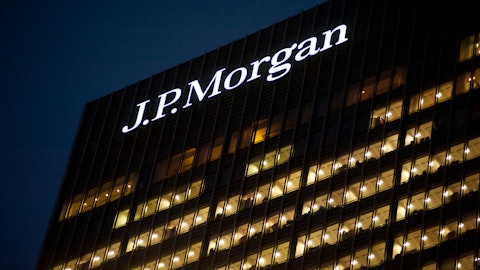As a general rule, there are two kinds of insider trading: legal and illegal. Illegal insider trading involves trading on material non-public information, which is closely monitored and severely punished by the U.S. Securities and Exchange Commission. However, corporate executives and directors can buy or sell their companies’ shares legally at any time, so long as these transactions do not take place outside companies’ trading windows. Much research shows that insiders’ trades tend to beat broader market benchmarks on aggregate, which also means that non-insiders can generate attractive trading profits by mimicking insiders’ moves without facing the scrutiny of the SEC. The Insider Monkey team pinpointed several noteworthy insider sales at three companies, so this article will focus on investigating those trades.
Prior to discussing the insider trading activity, let’s make you familiar with what Insider Monkey does. At Insider Monkey, we track hedge funds’ moves in order to identify actionable patterns and profit from them. But why do we track hedge fund activity? Our research indicated that hedge funds’ long positions beat the market. In our back-tests covering the 1999-2012 period, hedge funds’ top small-cap stocks beat the S&P 500 index by double digits annually (read the details here).
Loews Corporation (NYSE:L) registered a high volume of insider selling last week, so let’s try to find out what might have triggered the insider bearishness. Andrew H. Tisch, Co-Chairman of the company’s Board of Directors and Chairman of the Executive Committee, reported selling 150,000 shares on Wednesday and 15,300 shares on Thursday at prices that ranged from $35.75 to $36.94 per share, all of which were held by trust funds. Following the recent sizable sales, the Co-Chairman continues to hold an indirect ownership stake of 14.36 million shares, which is held through the aforementioned trusts.
The diversified company has four main subsidiaries, which include CNA Financial Corporation, Diamond Offshore Drilling, Boardwalk Pipeline Partners and Lowes Hotels & Resorts, and was founded by Andrew Tisch’s father Larry Tisch and his uncle Bob Tisch. The holding company mainly derives its cash flow from its subsidiaries, some of which have been severely hit in the past few quarters. For instance, Diamond Offshore Drilling, which provides drilling services to the energy industry through a fleet of 33 offshore drilling rigs, reported a net loss of $274 million for 2015, well below the net income of $387 million it reported for 2014. The bottom-line results included substantial charges related to the write-down of 17 rigs. The subsidiary also halted its quarterly dividend of $0.125 per share in an attempt to preserve liquidity and strengthen its financial health. The subsidiary’s 2015 revenue decreased to $2.42 billion, from $2.82 billion in 2014. Let’s not forget to mention that the shares of the holding company are down by nearly 17% over the past 12 months. Ric Dillon’s Diamond Hill Capital was bullish on Loews Corporation (NYSE:L) in the fourth quarter of 2015, during which the fund upped its stake in the company by nearly 475,000 shares to 4.86 million shares.
Follow Loews Corp (NYSE:L)
Follow Loews Corp (NYSE:L)
Receive real-time insider trading and news alerts
Let’s head to the next page of this article, where we discuss the insider selling witnessed at Honeywell International Inc. (NYSE:HON) and Equifax Inc. (NYSE:EFX).





